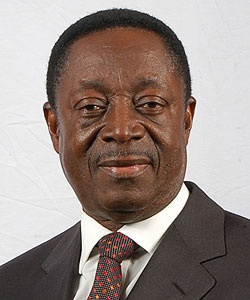
Though health workers and some teachers and public sector workers have not been migrated onto the Single Spine Salary Structure (SSSS), government’s wage bill continues to escalate, threatening the fiscal state of the economy.
According to the latest Bank of Ghana (BoG) report on fiscal developments in the economy, the pace of growth in expenditure, largely driven by the public sector wage bill, poses a major threat to the fiscal consolidation process. The recent government supplementary budget approved by parliament indicated that the overall fiscal deficit within the period went up by one percent from 4.1 per cent to 5.1 per cent of Gross Domestic Product (GDP).
Information reaching CITY & BUSINESS GUIDE indicates that government does not have enough funds to meet the demands of some workers.
The highlights of the budgetary development from January to August 2011 showed that government’s total expenditure, excluding externally financed capital expenditure, amounted to GH¢7.528 billion, representing 14.1 per cent of GDP. This, according to the report, was 12.9 percent higher than the target of GH¢6.430 billion.
Total expenditure increased by 40.8 per cent over GH¢5.345 billion, 11.9 percent of GDP recorded in 2010.
The surge in government spending was mainly on account of increased growth in discretionary spending.
Some economic think tanks, the Center for Policy Analysis (CPA) and the Institute of Statistical, Social and Economic Research (ISSER) have questioned government’s management of the fiscal state of the economy especially its borrowing stance, citing the Greek crisis which is threatening Europe.
The government is also struggling to increase the salaries of doctors, graduate teachers and other public sector workers.
A report released by the Monetary Policy Committee (MPC) last week also revealed that Ghana’s debt shot up to a record 41.7 percent of GDP.
According to the data, the country borrowed GH¢11.4 billion domestically mostly from bonds issued at the end of September 2011 while the external debt was GH¢10.8 billion, equivalent of $7.1 billion. The external debt does not include the $3 billion Chinese Loan the government is contracting from the Chinese government.
The largest opposition party, New Patriotic Party (NPP) has described the Chinese loan as oppressive, saying it comes with commitment fees, upfront fees and interest rates.
While the domestic debt constituted 51.1 percent, the external debt portion was 48.9 percent.
Of the total domestic debt, 31.5 percent were short-term instruments, 51.6 percent were medium-term instruments and 16.9 per cent were long-term instruments.